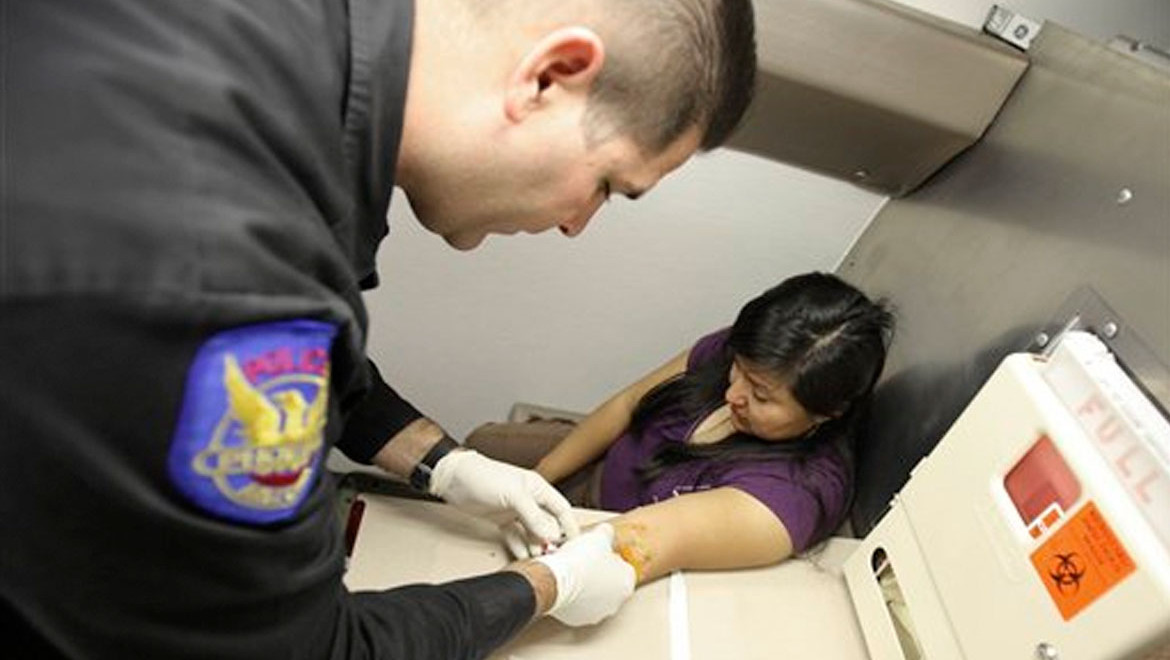
In State v. Pearson the WA Court of Appeals Division I held that (1) exigent circumstances did not support a warrantless blood draw for marijuana, (2) it’s reversible error to discuss the .05 THC limit in a DUI case that arose prior to the passage of I-502.
Defendant Tamisha Pearson was a medicinal marijuana patient due to numerous health problems. She struck a pedestrian with her car, pulled over and called 911. Seattle Police Officers arrived. Officer Jongma was a drug recognition expert. Pearson initially denied consuming any drugs or alcohol that day. She agreed to perform field sobriety tests.
Some of Pearson’s behavior during the sobriety tests indicated she was impaired. Pearson told Officer Jongma that she is authorized to consume medicinal marijuana and that she had smoked earlier in the day. Based on that, Officer Jongma arrested Pearson for suspicion of Vehicular Assault and DUI.
Officer Jongma transported Pearson to Harborview Medical Center for a blood draw. They arrived at the hospital at approximately 5:26 pm—2 hours after the initial collision and 1 hour and 20 minutes after Officer Jongma arrived on the scene. At approximately 5:50 pm, a nurse drew Pearson’s blood without her consent and without a warrant. A toxicologist analyzed Pearson’s blood sample for cannabinoids on February 21, 2012. The analysis determined Pearson’s THC concentration was approximately 20 nanograms.
On August 18, 2012, the City of Seattle charged Pearson in Seattle Municipal Court on one count of driving while under the influence of an intoxicating drug. The court initially granted Pearson’s motion to suppress the blood evidence.
TRIAL
At trial, the City introduced testimony of forensic toxicologist Justin Knoy of the Washington State Toxicology Laboratory. Over Pearson’s objection, the City elicited testimony from Knoy that the per se legal limit of THC concentration under Washington law was 5 nanograms. At the time, however, no per se limit for THC concentration in Washington existed when the accident occurred. The jury found Pearson guilty of DUI.
ISSUES ON APPEAL
The Court of Appeals addressed four issues: (1) whether exigent circumstances existed to justify the warrantless extraction of Pearson’s blood, (2) whether exigent circumstances existed to justify the warrantless testing of Pearson’s blood, (3) whether the trial court erred when it failed to include Pearson’s proposed jury instruction, and (4) whether the trial court erred when it permitted Knoy to testify that the per se legal limit for THC concentration was 5 nanograms.
1.Exigent Circumstances did NOT Exist to Justify Extracting & Testing Pearson’s Blood.
First, the Court of Appeals decided the City failed to show that obtaining a warrant would have significantly delayed collecting a blood sample. It reasoned that the natural dissipation of THC in Pearson’s bloodstream alone did not constitute an exigency sufficient to bypass the warrant requirement.
2. Trial Court Mistakenly Admitted Testimony From Toxicologist.
Second, the Court of Appeals decided the trial mistakenly admitted testimony from the toxicologist regarding THC limits. At the time, evidence of the .05 legal THC limit was NOT in effect when the offense occurred and was irrelevant to the central question at trial—whether Pearson’s ability to drive was lessened in any appreciable degree by her use of marijuana. The court reasoned the evidence was highly prejudicial because the blood test showed that Pearson had a THC concentration of 20 nanograms. Consequently, evidence of the current per se legal THC limit of 5 nanograms invited the jury to retroactively apply law that was not in effect at the time of the alleged offense and conclude that the blood evidence alone was sufficient to prove guilt.
3. The Defendant’s Jury Instruction Was Properly Denied.
At trial, the lower court denied the Defendant’s proposed jury instruction:
It is not unlawful for a person to consume a drug and drive. The law recognizes that a person may have consumed a drug and yet not be under the influence of it. It is not enough to prove merely that a driver had consumed a drug.
The Court of Appeals held that, under these circumstances, the trial court did not abuse its discretion when it refused to include Pearson’s proposed jury instruction because she was able to argue her theory of the case based on the instructions given.
In conclusion, the Court of Appeals reversed the Defendant’s conviction and remanded it back to the lower court.
My opinion? Good rulings; especially the one regarding the mistakenly-admitted testimony from the Toxicologist. I-502’s legal limits regarding THC was not in effect at that time. Having a witness testify to limits was, therefore, a mistake.
Please contact my office if you, a friend or family member are charged with a crime. Hiring an effective and competent defense attorney is the first and best step toward justice.






